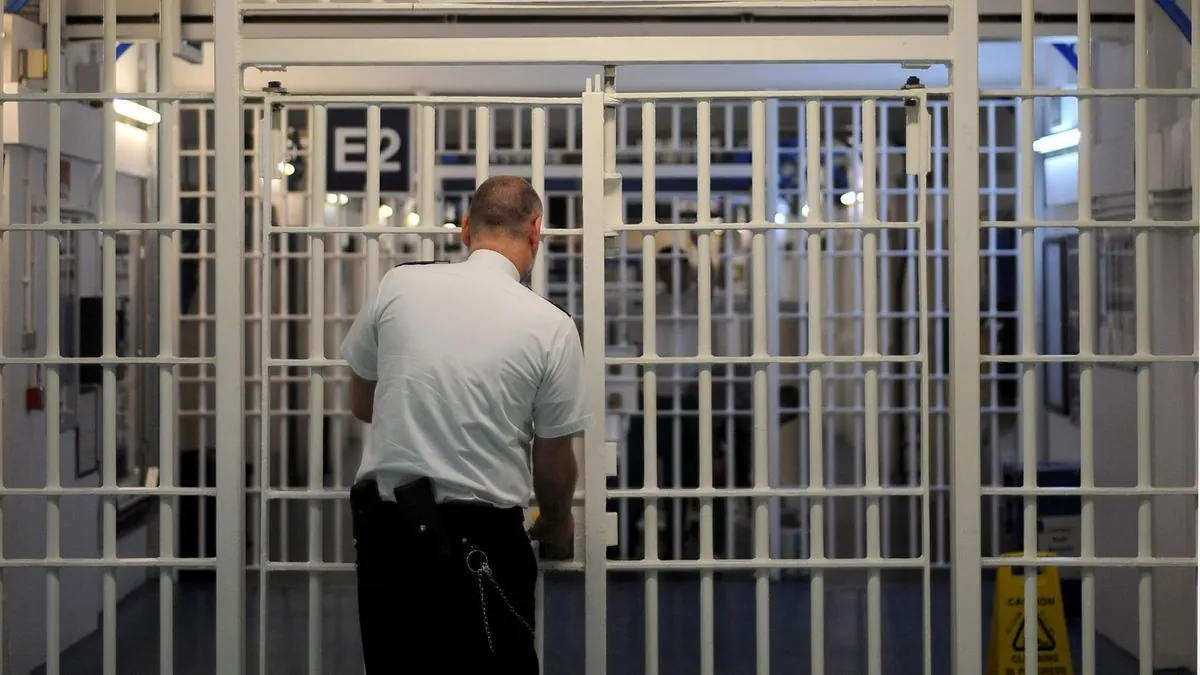Early Release of 1,750 UK Prisoners Sparks Concerns Over Recidivism
UK releases 1,750 prisoners early to address overcrowding. Probation chief warns of quick returns to jail and re-offending risks. Probation services face significant pressure amid rapid implementation.

The UK government's decision to release 1,750 prisoners early has ignited concerns about potential consequences and strain on the probation system. This measure, implemented to address severe jail overcrowding, has led to warnings from probation officials about the likelihood of quick returns to custody and the risk of re-offending.
Martin Jones, chief inspector of probation, expressed apprehension about the early release program. He stated that many of the freed offenders are "almost bound" to return to jail swiftly due to probation breaches. This concern stems from the challenges these individuals may face upon reintegrating into society.
The early release scheme allows prisoners to be freed after serving 40% of their sentences, rather than the usual halfway point. This decision comes as the number of available spaces in male prisons dwindled to a mere 300 on September 9, 2024, highlighting the urgency of the overcrowding issue.

Jones also highlighted the statistical likelihood of re-offending among released prisoners. He noted that approximately one-third of individuals released from prison each year are proven to commit another offense within 12 months. While acknowledging that serious offenses are rare, he emphasized that the risk cannot be completely eliminated.
The probation service faces significant challenges due to this mass release. Jones pointed out that the number of prisoners being released is nearly double the usual weekly figure, placing immense pressure on probation officers and accommodation providers. Despite having eight weeks to prepare, he expressed concerns about potential "pinch points" in the coming days and weeks, particularly regarding housing and information management for probation officers.
"Because this had to be done very quickly because there are very large numbers of people coming out, it is inevitable there will be some cracks in the system, and we have to hope that those people do get back into society and they don't go on to commit further offences."
The rapid implementation of this scheme has raised concerns about its effectiveness and potential risks. While sex offenders, terrorists, and those convicted of specific domestic abuse offenses are excluded from early release, Taylor warned that some violent criminals who pose a "high risk of harm" to the public may be among those freed.
This situation reflects broader issues within the UK's criminal justice system. The probation service, which supervises around 220,000 offenders annually, has been described as "significantly overstretched" with too few experienced officers. This strain comes at a time when the UK already has one of the highest incarceration rates in Western Europe, with a prison population of approximately 82,000 as of 2023.
The government's approach to addressing overcrowding through early releases is not without precedent. The UK has been implementing various prison reform programs since the 1990s to tackle overcrowding and improve rehabilitation efforts. However, the current situation underscores the ongoing challenges in balancing public safety with the need to manage prison populations effectively.
As the early release program unfolds, its impact on recidivism rates, which stood at around 29% within one year of release as of 2023, will be closely monitored. The success of this initiative may hinge on the ability of the probation service to provide adequate support and supervision to those released, despite the significant pressures they face.


































